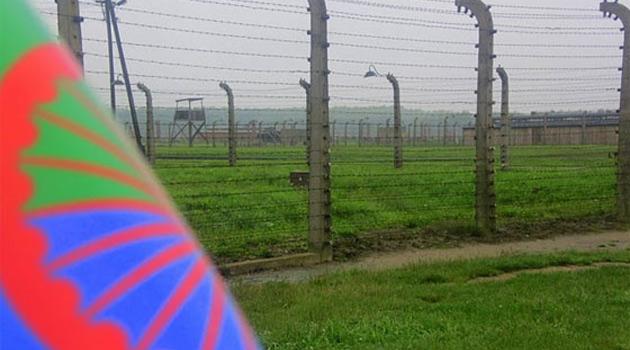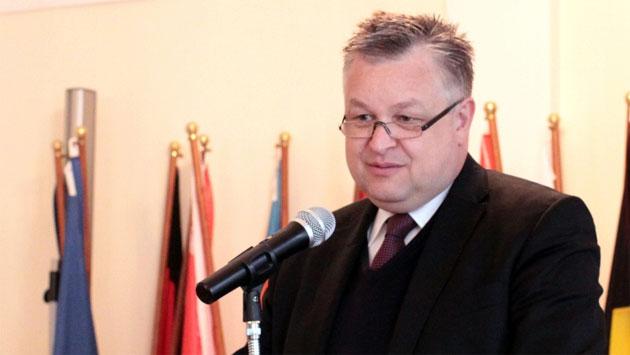UN: Ensuring the right to remembrance and dignity for the Roma people

On the 70th anniversary of the Roma Holocaust –‘Porrajmos’ or ‘Pharrajimos’–
two United Nations human rights experts urge all governments around the world to
ensure the right to remembrance for the Roma people.
The United Nations Special Rapporteur on minority issues, Rita Izsák, and the
Special Adviser of the United Nations Secretary-General on the Prevention of
Genocide, Adama Dieng, call for stronger measures and initiatives to keep the
memory of the Roma Holocaust alive and enable survivors, Roma communities and
others to mark it in a recognized and dignified manner.
A testimony from the book “Porrajmos” – Recollections of Roma Holocaust
survivors
Else Schmidt was seven years old when taken in the summer of 1942 from her
home in Hamburg. She remembers two men in military coats marching her to a
warehouse on the docks where they left her among crowds of Gypsies already
gathered there. Else had no idea why she had been brought there. In fact, she
had no idea what a ‘Gypsy’ was. Else’s parents drew a veil at home over her
torment. Humiliation at school worked more brutally: ‘I have very bad memories
of school, because I still had my concentration camp number tattooed on my arm
with just a plaster to hide it. On the first day, the teachers, who were bad
Nazis, forced me to stand up in class. They said to me: You must stand here
until you have told everyone what is under the plaster.
“Many people globally have little or no knowledge that Roma were targeted by
the Nazi regime. Under the Nazis, Roma were subjected to arbitrary internment,
forced labor, and mass murder. German authorities murdered tens of thousands of
Roma in the German-occupied territories of the Soviet Union and Serbia and
thousands more in the death camps.
On the night of 2 to 3 August 1944, all remaining 2,897 Roma men, women and
children in the so called ‘Gypsy family camp’ in Auschwitz-Birkenau, were taken
to gas chamber V and were murdered by the Nazis.
Much remains to be done to establish the right and possibility for Roma to
remember and commemorate with dignity. In several countries where evidence
suggests that Roma fell victims to the Holocaust, governments should make 2
August an official day of remembrance for the victims of the Pharrajimos. All
the world’s governments and the international community, including the United
Nations, must make sure that they include reference to the suffering of Roma in
their Holocaust education and commemoration events.
In order to allow appropriate commemoration, Roma graves and mass graves,
including those that have not yet been marked, must be identified and preserved
to enable survivors to remember and mourn in dignity.
Violence against Roma is not only a matter of history but is a sad reality
for many Roma communities today, also. We must realize that the hatred and the
dehumanization of the victims of the Holocaust that characterised the Nazi era,
still exist in the hearts and minds of some individuals in Europe today. These
individuals are capable of committing violence against our fellow Roma citizens
simply because of who they are.
We must make sure that governments remain vigilant to this risk and take
appropriate measures against signs of hatred and stigmatization. They must step
up their action against hate speech and incitement to hatred before it is
manifested in violence and atrocities. We call on all States to meet their
responsibilities by implementing effective measures to protect their populations
from discrimination and violence based on their identity.
The growing presence of and support for extremist parties and ideologies,
which often target Roma and other minority populations, including immigrants, is
of increasing concern in Europe. It is in the interest of all European
governments and democratic political parties to step up their efforts to
establish necessary integration policies and platforms to ensure that all
populations, including the Roma are considered and treated equally, can live in
security and raise their children without fear.”
From that day, for eighteen years, Else spoke with no one about what had
happened to her in Auschwitz and Ravensbrück aged 8 and 9.
